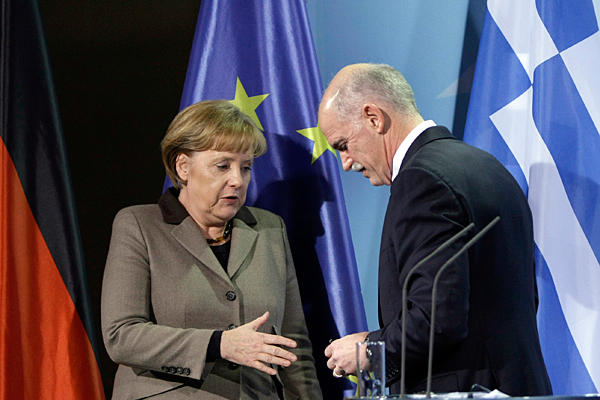It's Germany's Mess as Much as Greece's

In my column for The Week I argue that Germany bears a lot of responsibility for creating the current European debt crisis:
The other day, a financial friend repeated a joke. "A Greek, an Italian, a Spaniard, and a German walk into a bar. Who pays? The German of course …"
Bzzzt. Let's stop the tape right there.
That joke — and many comments like it — reveals a broad misunderstanding in the U.S. about the currency crisis destabilizing Europe. Since that same crisis is ravaging U.S. financial markets, Americans ought to understand better.
The euro currency was not a favor done by Germany to the rest of Europe. In fact, you could much more convincingly argue that Germany was the biggest single winner from the euro — and that the time has come for Germany to pay for it.
Imagine a world in which Europe had proceeded with economic unification, but did not create the euro.
In such a world, as in our world, goods and workers would move freely from Warsaw to Lisbon. Europe's internal investment barriers would have largely vanished.
What then?
In such a world, Germany as the most productive economy would have begun to rack up large trade surpluses. As those surpluses accumulated, the value of the Deutsche Mark would have appreciated against Europe's other currencies. The cost of doing business in Germany would rise relative to, say, the Czech Republic or Slovenia. Investors would shift their operations out of Germany. Jobs would be created outside Germany and destroyed inside Germany.
Click here to read the full column.

